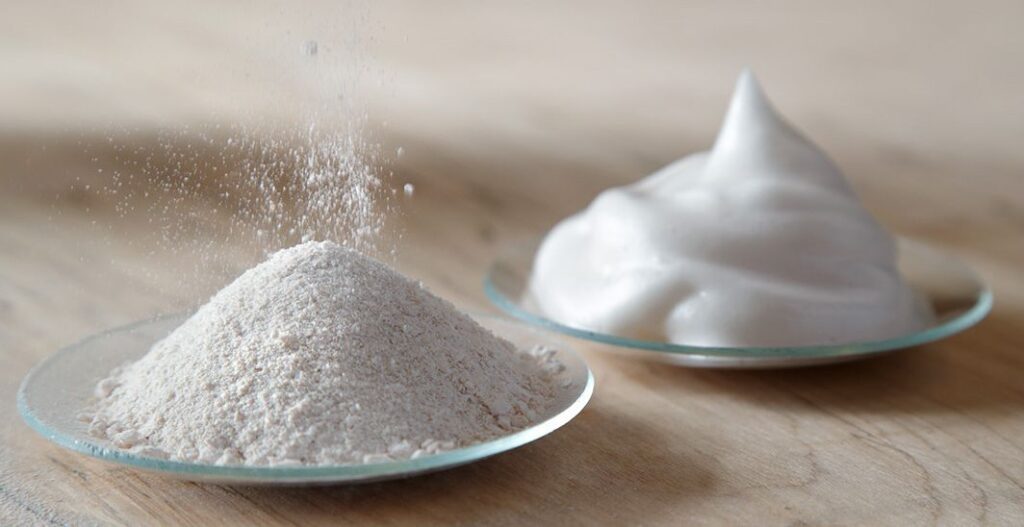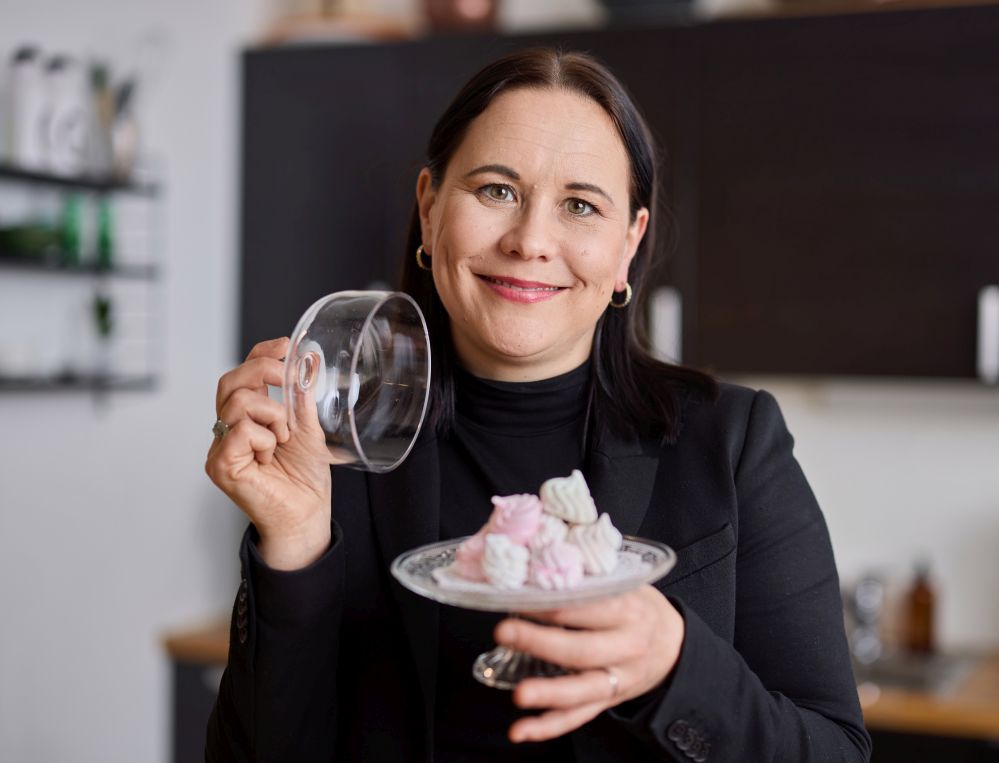Finnish startup Onego Bio—which makes egg proteins using microbes instead of chickens—has secured €14 million ($15.2 million) in new funding from the European Innovation Council (EIC) Accelerator program (the EIC fund) and additional series A investors to scale its precision fermentation operation.
The firm, which announced a $40 million series A round in April and has raised $70.8 million to date, uses a genetically engineered strain of fungus to express ovalbumin (brand name: ‘Bioalbumen’), the most prevalent protein in egg white.
While fellow precision fermentation startup The EVERY Co produces ovalbumin from yeast (Komagataella phaffii) strains, Onego Bio uses strains of the fungus Trichoderma reesei, which it claims can deliver superior titers and yields.
On track to achieve self-affirmed GRAS (Generally Recognized as Safe) status this year, Onego Bio will submit that determination to the FDA with the hope of securing a ‘no questions’ letter in 2025, says the firm, which is also planning a Novel Foods submission to EFSA to secure EU market entry.
Onego Bio—which has commercial operations in San Diego—was one of 68 companies selected from a pool of 969 startups to secure funding from the EIC Accelerator, which is looking for firms with a high-impact, scalable product, service, or business model that can create new markets or disrupt existing ones.
Founded in 2022 as a spinoff from VTT (Technical Research Center of Finland), Onego Bio is scaling up production with co-manufacturers while finalizing plans for in-house manufacturing, said the firm, which is working with leading food companies in baked goods, confectionery, snacks, sauces, pasta, and meat alternatives.
“A single Onego full scale manufacturing unit will boast a two-million-liter fermentation capacity, effectively delivering the protein equivalent of six million laying hens.”

The market opportunity for animal-free egg proteins
While investments in some parts of the alternative protein category have cooled off, egg replacement is viewed a little differently, Onego Bio cofounder and CEO Maija Itkonen told AgFunderNews.
Food manufacturers have been looking for viable egg replacements for years as prices and supplies fluctuate wildly with every new avian flu outbreak, says Itkonen. And as such, while some customers care that egg proteins made without chickens may be greener and kinder, you don’t have to care about animals or the planet to buy into what Onego Bio is doing.
At base, manufacturers just want eggs’ functionality and clean label credentials, without the associated hassle, says Itkonen, an industrial designer who made her first move into the food industry in 2015 after cofounding plant-based meat firm Gold & Green.
“The environmental aspect is more a case of companies that want to futureproof their supply chains as environmental regulations and reporting requirements step up, but right now, the two driving factors [driving demand for animal-free egg protein] are a shortage of cage-free eggs and the volatility caused by avian flu.”
While Onego Bio is only producing a single egg protein (ovalbumin), it is able to replace eggs in many applications, delivering functional properties including aeration, whipping, gelling, binding, and foam stability, said Itkonen. “Trials with food manufacturers in bakery, confectionery, snacks and other products have been extremely successful.”
Higher titers and yields
There are pros and cons to any microbial host, said Itkonen, who noted that high titers (the amount of an expressed target molecule relative to the volume of liquid) aren’t much use if productivity (how long does the fermentation take?) and yield (feed conversion) figures are poor. But she added: “We are seeing titers or 60, 80 and 100g per liter but at the same time also seeing good yields, but we’re constantly improving.”
She added: “This is part of the challenge with regulatory applications in the EU, as once you file your application [for a Novel Foods submission] you can’t go in and make changes or tweaks to it later, so you have to think carefully about when to submit. We’re improving strains all the time so the question is when is it ‘final’? The other challenge is a lack of transparency in the process.”
Manufacturing
Right now, Onego Bio is working with co-manufacturers but ultimately wants to build its own facilities, said Itkonen. “We want to work with co-manufacturers initially to ensure our process is in perfect shape before we start building our own factory. It’s very important to do these things in stages. But after a couple of years we want to start building our own factory as there really is not that much capacity out there.
“In order to really have the massive volumes the egg industry needs, we’d need our own facility, plus of course we have to minimize all costs as having cost parity is so important.”
She added: “We will have volumes for big trials this year and then the bigger market activities will start in a year or so.”

The animal-free egg landscape
While multiple players have entered the ‘animal-free’ dairy space with whey, casein, and other dairy proteins expressed by microbes in fermentation tanks, The EVERY Co and Onego Bio are the only two well-known startups engineering microbes to make egg proteins.
The EVERY Co, which is the most advanced, recently struck a deal with multinational food manufacturer Grupo Palacios to incorporate its liquid egg alternative into Palacios’ flagship Spanish omelets. It has also teamed up with Unilever-owned brand The Vegetarian Butcher to incorporate its egg white alternative into selected meat alternatives as a clean label binder.
Further reading:
Meet the founder: Onego Bio CEO says ‘avian flu has changed the game’ for animal-free egg proteins
World’s #1 Spanish omelet maker Grupo Palacios to formulate with The EVERY Co’s hen-less egg





